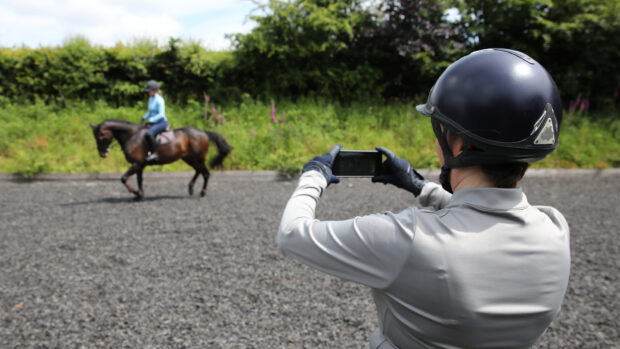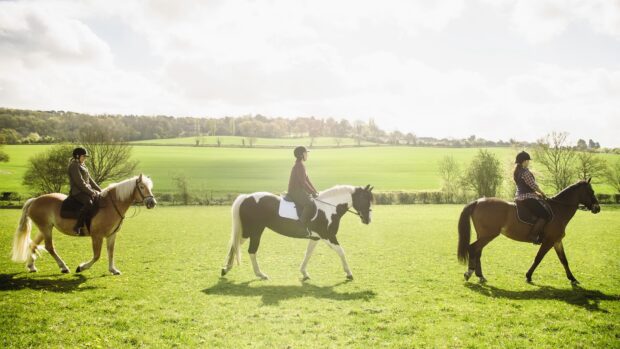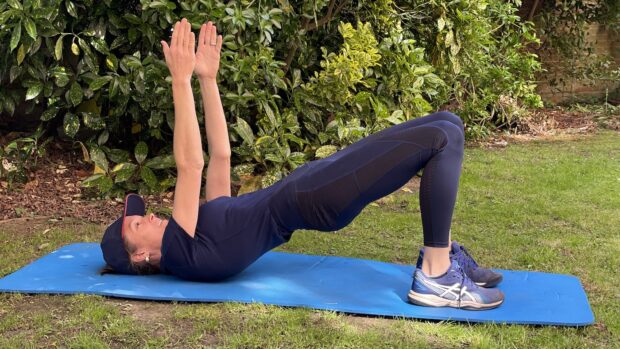How you fuel your body can mean the difference between success and failure. Personal trainer Matt Luxton’s nutritional plan is specifically designed to boost a rider’s performance in the saddle
A long queue in front of a burger van in the lorry park at an event is a common sight. Convenient and tasty — but it’s not a good way to fuel your body for riding. Correct diet and exercise go hand in hand with being a successful athlete and that is the message that leading fitness and health professional Matt Luxton aims to get across in his Equestrian Athlete Plan.
“Riders should eat fresh, natural and whole foods rather than the nutrient-robbing foods that have slipped into a healthy lifestyle,” he says.
Managing your eating habits is essential for feeling that you are performing at your
best in the saddle, says Matt, who has designed the Equestrian Athlete Plan, containing
easy-to-follow fitness exercises and dietary advice, to help keep riders in shape.
The plan
Matt stresses that this is not a diet. Within reason you can choose the portion sizes but from healthy and whole sources, avoiding the processed foods that leave you feeling lethargic in the afternoon.
The aim is to remove all unwanted toxins from your body that have been consumed through processed foods, smoking, alcohol and pollution. By filling your body with nutrient-rich, wholesome foods, you will lose a significant amount of fat over a relatively short time, as well as improve your health, vitality and general wellbeing.
The plan lasts eight weeks and for the first four, riders detox by removing unhealthy food groups from their diet. By de-stressing the liver, it becomes more efficient at utilising fat as a fuel, which helps reduce fatigue in the saddle.
Detoxing means removing the body of toxins and poisons, which enter through food and drink consumed and the air you breathe. When your body is overloaded with toxins, it stores the excess as fat, so when you stop taking them in, these toxins can be processed and excreted.
Most bodies struggle to digest certain foods and react against them. This is intolerance and can cause symptoms such as dizziness, headaches, stomach pains or tiredness and vomiting. After having eaten foods that we are intolerant to, our bodies have a reduced capacity to absorb the nutrients that are essential. This is the start of us becoming sick.
The only way to find out which foods you are intolerant to is to remove potential suspects (see above) from your diet completely. Do this for four weeks, which is long enough for the digestive system to begin working properly.
At week five, start to slowly reintroduce one food group at a time in the following order:
➤ Millet and spelt
➤ Wholegrain pasta
➤ Wholegrain bread
➤ Milk
➤ Cheese
Begin with one portion a day and if you suffer any reactions, which will probably occur within one to two days, that food should be removed from your diet permanently. If there are no reactions, that group can be eaten in moderation.
There are other things to keep in mind, too. “Organic foods are better, because they
avoid pesticides and fungicides. Try to eat fruit or vegetables with every meal and
sip water freely,” says Matt, who also advises only drinking freshly squeezed fruit juices to avoid added sugars.
“Make sure you eat regularly. Aim for three main meals and two to three snacks per day so that you eat every three to four hours for slow-energy release and increased metabolism.”
For more information about Matt Luxton’s Equestrian Athlete Plan and Hot To Trot Cookbook, visit his website at www.theequestrianathleteplan.com



